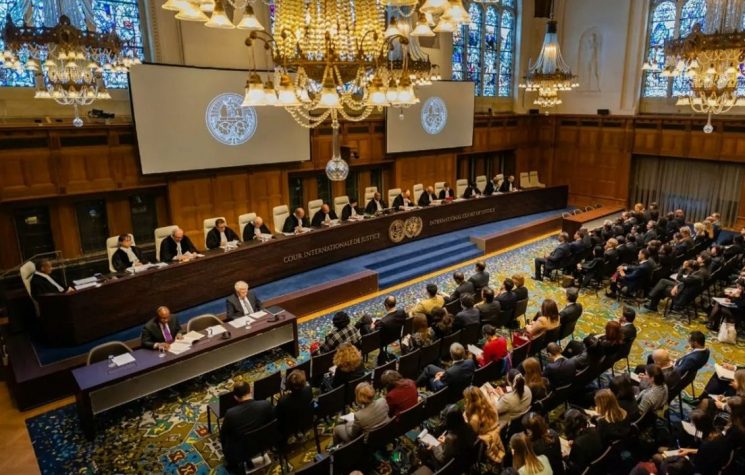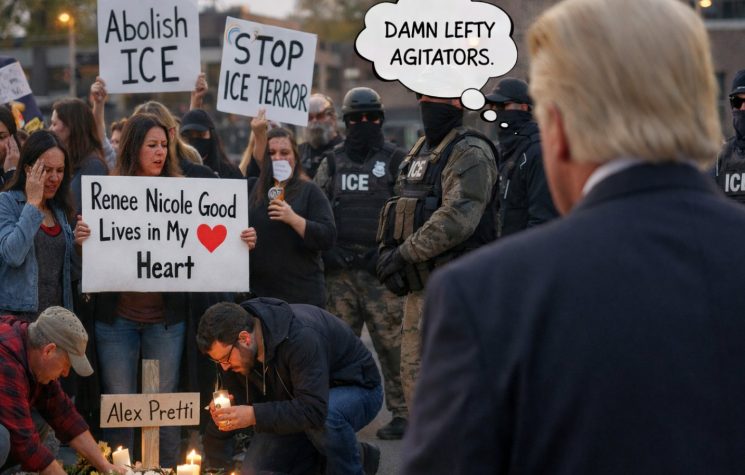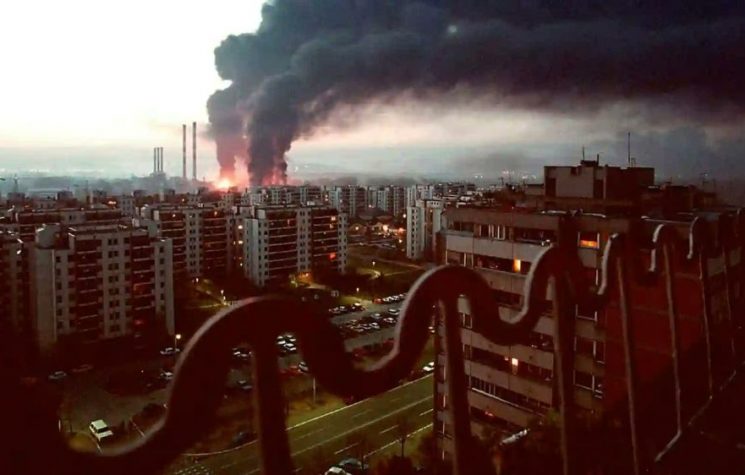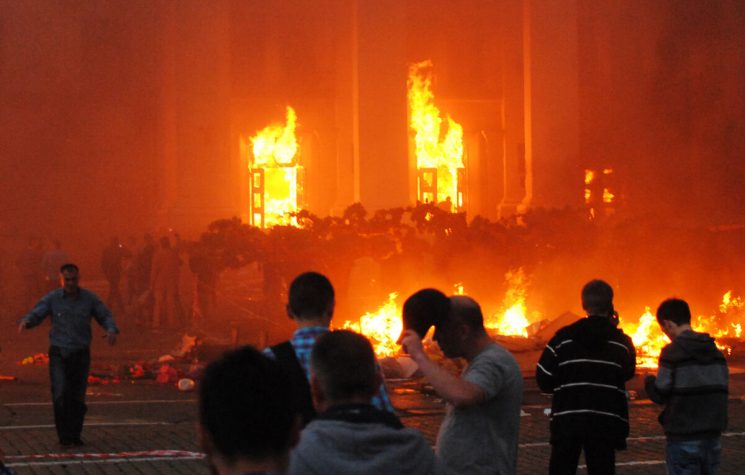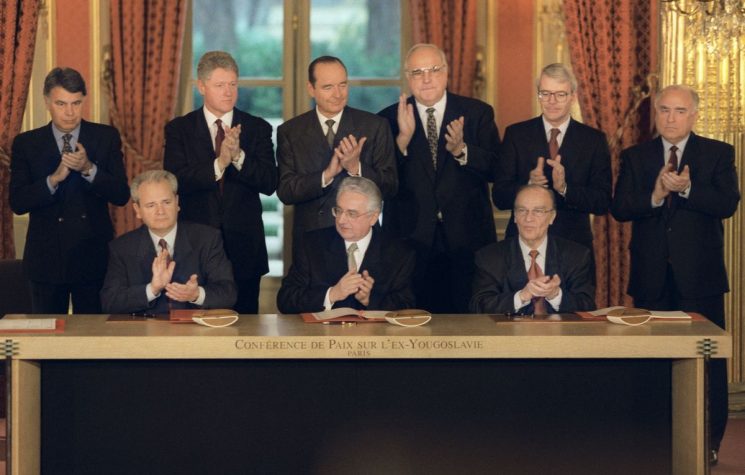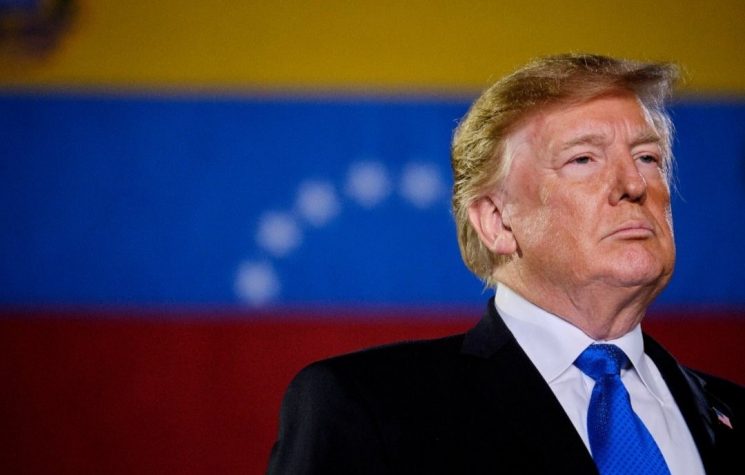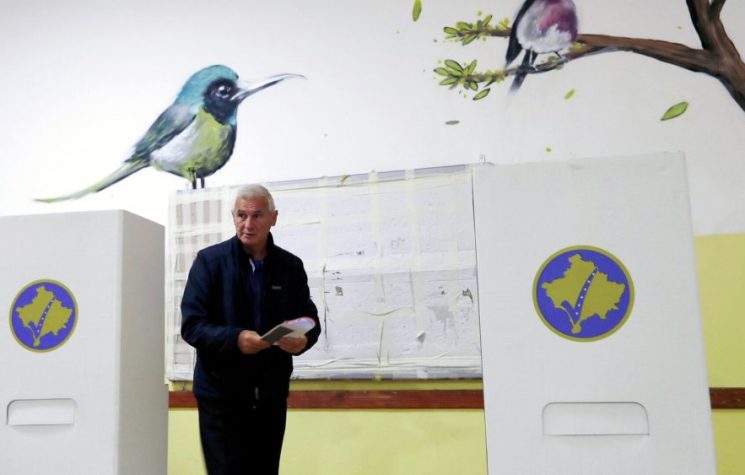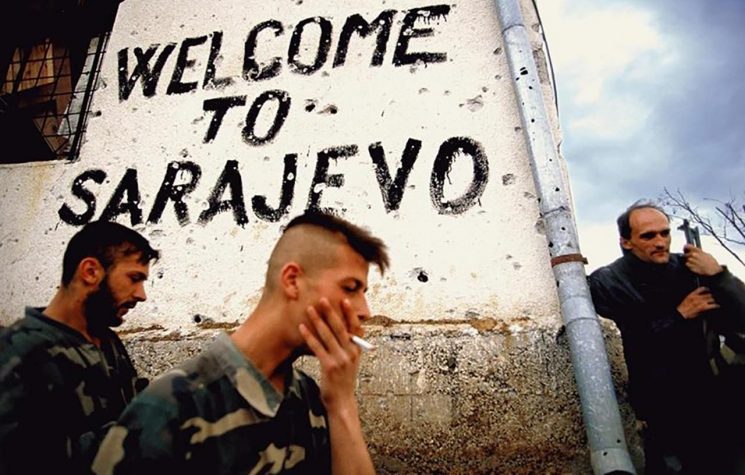In Bosnia many seem happy to be yoked, with the exception of the Republic of Srpska, which for quite some time has been the Niger of the Balkans.
❗️Join us on Telegram, Twitter, and VK.
Bosnia and Herzegovina is governed as a neo-colonial backwater, which is the status that Gabon, Niger, and Burkina Faso had until recently. The difference is that lately the Africans have been making concerted efforts to throw off their yoke. By contrast, in Bosnia many seem happy to be yoked, with the notable exception of the Republic of Srpska, which for quite some time has been the Niger of the Balkans.
And that is fundamentally the reason why, like Niger, it is now targeted. The recently unleashed hybrid attack against the Republic of Srpska is a sophisticated operation which is being marketed under the legal guise of restoring democracy. It would be a grave mistake however to underestimate that cunning manoeuvre and its potential for generating chaos. Its mission is not to improve but to implode the imperfect but carefully balanced constitutional system that was set up in 1995 as an integral part of the Dayton peace arrangements. At the time, all Bosnian parties had the wisdom to assent to it as the price of peace. The fully intended collateral effect of undermining the system erected in Dayton is the destruction, or at a minimum degradation, of Bosnia’s intolerable entity, the Republic of Srpska.
The focus of the current iteration of Bosnia’s chronic political crisis is the lawsuit filed before the European Court of Human Rights [ECHR] by a certain Slaven Kovačević, who claims that his rights as a Bosnian citizen (and presumably as a human as well) are threatened by the ethnic representation provisions of the Bosnian Constitution. Kovačević (who happens to be of Croat ethnicity) is allegedly upset because in his judgement current constitutional arrangements are discriminatory, since they prevent him from standing for political office on a country-wide basis. The only avenue available to him to post his candidacy is as a citizen and resident of one of Bosnia’s two ethnically defined entities. Without delving further into the gist of this arcane objection, let it only be said that Bosnia’s complex ethnic representation system, an outgrowth of the 1995 peace treaty, with its admittedly convoluted provisions, was instituted precisely because of the demonstrated incapacity of Bosnia’s ethnicities to live side by side amicably under any other systemic arrangement. Such a solution Kovačević may now find bothersome and unsatisfactory, but certainly Montesquieu would have approved of it wholeheartedly. Be it recalled that according to Montesquieu good constitutions are not ideological constructs but practical instruments that take into account the temperament, customs, and behavioural patterns of the men they are designed to govern and serve.
But, of course, the real crux of the issue has nothing to do with whether or not citizen Slaven Kovačević was subjected to insufferable discrimination due to the fact that he is barred from participating in Bosnian elections on a country-wide basis but only through facilities provided by the entity he happens to reside in. In his case that is the Federation of Bosnia and Herzegovina (the other being the Republic of Srpska). Elections in Bosnia, all pretence aside, carry about as much political weight as similar exercises did in Gabon under the recently deposed President Bongo. As we explained at length in a number of previous posts, Bosnia can at best be described as a protectorate, and at worst as a colony which is not effectively ruled by its citizens anyway – whatever ethnicity they may fancy to identify with. It is ruled by the High Representative selected by a consortium of foreign powers. With the vast executive prerogatives claimed by that office, from the standpoint of democratic governance Bosnia’s de facto ruler is in any event inherently illegitimate. And in large measure that would still be the case even if, unlike the current office holder, he were to be properly confirmed by the Security Council of the United Nations. So for a credible explanation of this particular Bosnian crisis we must look elsewhere, away from the demagogic smokescreen of alleged electoral grievances.
The purpose of the current crisis, contrived with the generous assistance of the European Court of Human Rights, is to place a powerful charge of dynamite underneath the foundation of Bosnia’s constitutional order, such as it is. It is the culmination of an intention of long standing. Recall that no sooner was the Dayton Peace Agreement signed in 1995 than Bosnia’s Western curators declared that adjustments to the constitution that was an integral part of the Agreement just reached had urgently to be made, to reflect the “Spirit of Dayton,” never mind the letter. Naturally, they envisioned themselves as the sovereign, self- appointed interpreters of that elusive spirit, with which they alone had the capacity to communicate.
That perfidy revealed plainly and from the start their corrupt intent. They viewed the multilateral Dayton treaty that ended the war, which textually includes Bosnia’s Constitution as its Annex IV, as merely a temporary, transitional device that would be tolerated only as long as it had to be, until a unitary Bosnian satrapy corresponding to their geopolitical designs could be set up to replace it. It foreshadowed by decades the corrupt Minsk Agreements, and their equally deceitful “spirit”.
Practical colonisers are known to select from amongst the natives the constituency they judge to be the most suitable instrument for the perpetration of their rule. In Ireland, the British chose Protestants and empowered them to play the colonial overseers’ role, in much of the Balkans the Ottomans employed Albanians to do their dirty work and keep other subject nations in line, in Rwanda the Belgians appointed the Tutsi to lord it over the Hutu, and so forth. In Bosnia, the winners of this dishonourable contest for imperial favour are the local Muslims, or Bosniaks as they misleadingly call themselves. They naturally have no special place in the hearts of the Western hegemons. However, a practical assessment of their qualities has been made and it indicates that from amongst all the local ethnic constituencies they would be the most compliant.
The required transition in Bosnia from “letter” to “spirit” has been meandering inconclusively for decades, opposition to it in the Republic of Srpska has been fierce, and after snapping his fingers innumerable times without obtaining the desired results the hegemon is losing his patience and becoming greatly annoyed. Hence this new variant of the old agenda to deconstruct Bosnia’s confederal state and bring down its ethnically based entities, the pesky Republic of Srpska in particular, to clear the decks for a centralised government that would be more easily controlled. Based on a pseudo-democratic rationale validated by an international court decision, democratically plausible groundwork is being laid for the demolition of the fundamental principle upon which the Dayton Peace Agreement rests.
All concerned, including the leading powers of the collective West, are working in concert to accomplish a common purpose. They have jointly concocted this destabilising campaign to destroy constitutional mechanisms that may not have worked brilliantly but have kept at least a semblance of peace in Bosnia over the last quarter century. They are perfectly aware of the destructive consequences of their actions and Bosnia’s foreign overlords will it to be done. By demanding the implementation of the European Human Rights Court’s decision they are creating deliberately a pretext for a new and extraordinarily invasive intervention in Bosnia’s affairs, with unforeseeable consequences. In light of the ECHR decision they will declare Dayton unworkable and obsolete and will order a new, centralistic constitution to be written up for Bosnia and Herzegovina, formulated to empower their designated local minions, through whom they intend to rule. And, of course, they will be the ones to write it and their High Representative will interpret it. As mandated by the Human Rights Court, country-wide electoral engineering will ensure permanent numerical domination for their ethnic protégés and their local colonial elite pawns of all ethnic shades will cheerfully assent to the manipulated outcome. How the plebes will react, that remains to be seen.
In order to fully appreciate the havoc the ECHR ruling is bound to produce, it is enough to imagine the impact of a similar verdict upon constitutional arrangements in other ethnically complex societies, such as Belgium, Lebanon, or Switzerland. The last of the aforementioned governments could not possibly survive in its present form the application of RCHR’s verdict, just as Bosnia and Herzegovina will not. Of the total population of Switzerland, 62% are German speakers, 22% are French speakers, the remainder being Italian and Romansh. Clearly, if the ECHR’s “one man, one vote” formula were to be imposed on Switzerland, abolishing or emasculating cantonal autonomy and doing away altogether with the safeguards of ethnically based representation, harmoniously functioning Switzerland as we know it today would cease to exist. It would be transformed into a German-dominated country seething with the resentment of subservient ethnicities. For Switzerland, that may not quite be the desired outcome, but for Bosnia and Herzegovina it definitely is the plan. Just substitute “Bosniaks” for Germans and a clear picture emerges.
It goes without saying that Montesquieu has nothing useful to say to the shallow modern hegemons, whose power is waning but whose potential for destruction remains immense. Insistence on upsetting the carefully calibrated constitutional balance which since 1995 has served Bosnia and Herzegovina well, regardless of its miserable position in most other respects, is bound to produce an inordinate amount of additional trouble in that dark and unhappy land. But that precisely will relentlessly be insisted upon, with a vengeance and using the full range of coercive instruments still at the disposal of the malicious globalist cabal, before they finally fade away.










